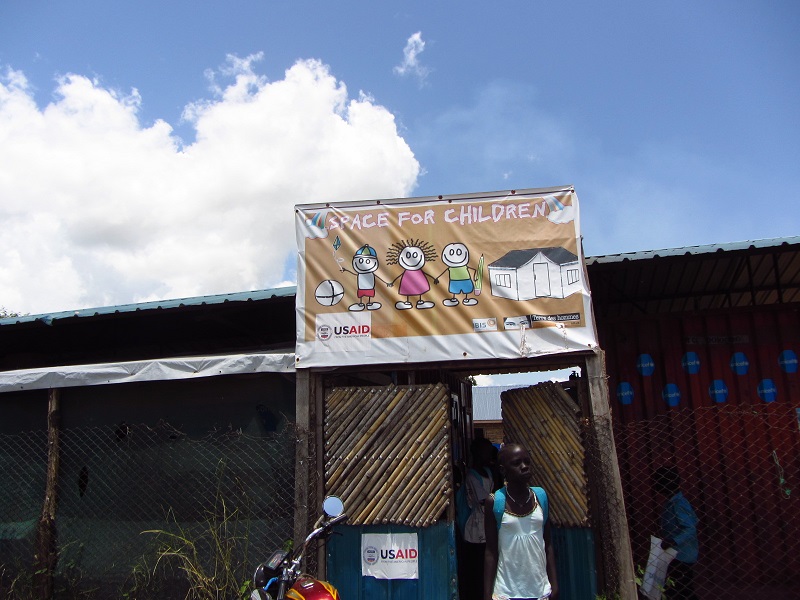Amir Manghali, Regional Desk Coordinator for East Africa, reports from Juba on the conditions facing displaced families in Mahad camp.
On 20 August, I visited Mahad IDP camp, together with Rose Juru Joushua, our Senior Programme Officer in Islamic Relief South Sudan.
Konkokonyo Market is dirty and full of litter, as usual, but as we drive toward the camp we see the minaret of the old mosque ahead. The mosque is next to the Mahad school compound, which is currently sheltering around 5,150 displaced people who were forced from their homes by the conflict sweeping this country.
As we enter the camp, it is clear that life here is far from easy. The living conditions are appalling. Twelve to 13 people are squeezed into a single tent, and privacy is a distant memory for most. It is a stark reminder of how overcrowding has eroded the social norms of the families sheltering in the camp.
People lack even the most basic things
With insufficient sanitation facilities in the camp, the latrines have filled to overflowing. Torn tents and makeshift shelters stand near the waste outlets from the latrines. Children sometimes play in the dirty water. Mosquitos are everywhere, and flies crawl over pots and utensils as people cook and eat as best they can.

Reports of outbreaks of severe communicable diseases in camps across South Sudan are increasing. Malaria, acute watery diarrhoea, and cholera are very real threats for the people in Mahad – many of whom lack even the most basic items, which could save their lives. Things like mosquito nets, jerry cans, and soap are much needed. So too are proper sanitation systems, as well as more clean water and tents for the families that have already been through so much.
“Imagine a life where you have been living comfortably, where you have the freedom to move around and eat vegetables and fresh food and to sleep well,” said Esther Poni, an Islamic Relief volunteer in the camp. “Now, because of the insecurity, this is how you have to live.”
Peace and hope are needed

In the neighborhood, there is a vibrant school for children around Juba – but disparities are already evident among the schoolchildren. The Child Friendly Center offers places for 2,000 displaced children, but because learning is not consistent, some of the children loiter in town begging – whilst others remain in the camps, envious of those that get to go to school.
“We cannot establish the real number of children enrolled,” a teacher told me. “Many come but after a few days, they drop out.”
Looking at the faces of the children as they sit watching others head off to lessons, it hits home how much they have lost and how much they crave return to normality.
“I lost my school uniform when we ran away to come here,” said one child. “I wish I could get another green uniform like I used to have.”
The children of Mahad, amongst two million to have fled their homes in the violence, are dreaming of peace. Peace – and with it, the renewal of hope for these displaced families – is much needed here.
The crisis in South Sudan is one of the most grave on the planet today. There is no end yet in sight. Please continue to support our work to help those caught up in the conflict: donate to our South Sudan Crisis Appeal today.
Donate









